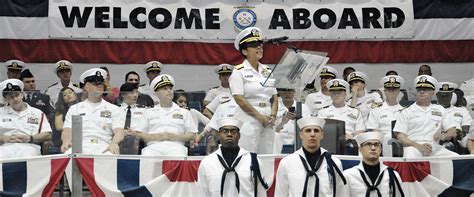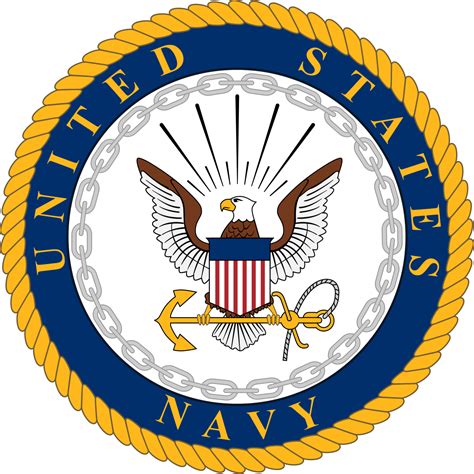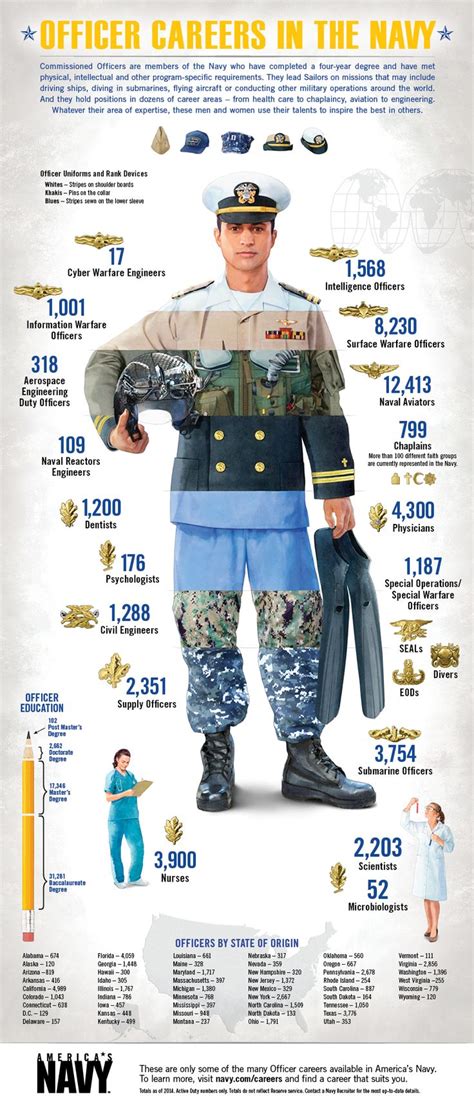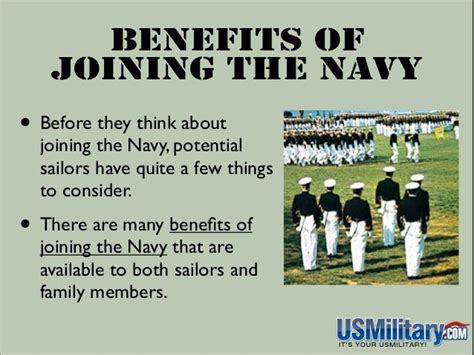Ultimate Guide To Joining The Navy Now

Introduction

The United States Navy offers a unique and rewarding career path, providing individuals with the opportunity to serve their country, gain valuable skills, and explore the world. If you’re considering joining the Navy, this comprehensive guide will walk you through the process, from understanding the requirements to navigating the application and training phases.
Eligibility and Requirements

Before embarking on your journey to join the Navy, it’s crucial to ensure you meet the basic eligibility criteria. Here’s an overview:
Age: Generally, you must be at least 18 years old to join the Navy without parental consent. However, 17-year-olds can also enlist with parental permission. The upper age limit varies depending on the specific program and can range from 28 to 39 years old.
Citizenship: To serve in the Navy, you must be a U.S. citizen or a resident alien. Non-citizens may be eligible for certain programs, but they must first obtain a Green Card and meet additional requirements.
Education: A high school diploma or equivalent is typically required. If you haven’t completed high school, the Navy offers the option to obtain your GED (General Educational Development) certificate while in service.
Physical Fitness: Navy recruits must meet specific physical fitness standards. These standards vary based on age and gender and include assessments of cardiovascular endurance, muscular strength, and body composition. Regular exercise and a healthy diet can help you prepare for these evaluations.
Medical Qualifications: Potential recruits undergo a thorough medical examination to ensure they are physically fit for duty. Vision and hearing standards must also be met. Some medical conditions may disqualify you, but waivers are sometimes available for certain conditions.
Legal and Criminal History: The Navy has strict guidelines regarding criminal records. Felony convictions and certain misdemeanors can disqualify you from joining. It’s essential to be transparent about your legal history during the application process.
Drug and Alcohol History: The Navy conducts drug tests as part of the recruitment process. A positive drug test or a history of substance abuse can result in disqualification.
Security Clearance: To access sensitive information and perform certain duties, Navy personnel require a security clearance. Your eligibility for a security clearance is assessed during the application process and is influenced by factors such as financial stability, legal history, and personal conduct.
Application Process

Once you’ve confirmed your eligibility, the next step is to navigate the application process. Here’s a step-by-step guide:
Contact a Recruiter: Begin by reaching out to a Navy recruiter. They will guide you through the application process and provide valuable insights. You can find a recruiter near you by visiting the official Navy website or contacting the Navy Recruiting Command.
Complete the ASVAB: The Armed Services Vocational Aptitude Battery (ASVAB) is a standardized test used to assess your aptitude for various military occupations. It covers areas such as general science, arithmetic reasoning, and mechanical comprehension. Your ASVAB scores determine your eligibility for different Navy ratings (occupations).
Choose Your Rating: Based on your ASVAB scores and interests, select a Navy rating that aligns with your skills and goals. Navy ratings encompass a wide range of specialties, including aviation, engineering, healthcare, and more.
Submit Your Application: Fill out the official Navy application form, providing detailed information about your education, work history, and personal details. Ensure that all information is accurate and up-to-date.
Medical Examination: As part of the application process, you’ll undergo a comprehensive medical examination to assess your physical fitness and ensure you meet the Navy’s medical standards.
Security Clearance: The Navy will conduct a background check to evaluate your eligibility for a security clearance. This process may involve interviews, financial reviews, and character references.
Interview: You may be invited for an interview with a Navy officer to discuss your application and determine your suitability for the Navy. Be prepared to answer questions about your motivations, goals, and relevant experiences.
Acceptance and Contract: If your application is successful, you’ll receive an offer of enlistment. Review the contract carefully, ensuring you understand the terms and conditions. Once you accept the offer, you’ll be on your way to becoming a Navy sailor.
Basic Training (Boot Camp)

Basic training, also known as boot camp, is an intensive program designed to transform civilians into disciplined Navy sailors. Here’s what you can expect:
Duration: Basic training typically lasts around 7–9 weeks, depending on your chosen rating and specialty.
Location: Navy boot camps are located at various naval stations across the United States, including Great Lakes, Illinois; San Diego, California; and Pensacola, Florida.
Physical Training: Physical fitness is a cornerstone of Navy training. Expect rigorous physical exercises, including running, calisthenics, and obstacle courses, to build strength, endurance, and teamwork.
Military Bearing: You’ll learn the fundamentals of military discipline, including proper conduct, respect for authority, and the importance of following orders.
Drill and Ceremony: Master the art of marching and performing military ceremonies, which are integral to Navy traditions and protocols.
Weapons Training: Gain proficiency in handling and firing various weapons used by the Navy, ensuring safety and accuracy.
Naval History and Traditions: Study the rich history of the Navy, its core values, and the significance of naval traditions.
Classroom Instruction: Attend classes to learn about naval operations, navigation, seamanship, and other essential skills required for your chosen rating.
Sea Training: Depending on your rating, you may participate in sea training aboard Navy vessels, gaining hands-on experience in your specialty.
Graduation: Upon successful completion of basic training, you’ll graduate and be officially sworn in as a member of the United States Navy.
Advanced Training and Specialization

After basic training, you’ll move on to advanced training specific to your chosen rating. This phase allows you to delve deeper into your chosen field and acquire specialized skills. Here’s an overview:
Duration: Advanced training can vary in length, ranging from a few weeks to several months, depending on your rating and specialty.
Location: Advanced training schools are located at various naval stations and bases across the country.
Specialty Training: Focus on your chosen rating, learning the specific skills and knowledge required for your role. For example, aviation ratings may involve flight training, while engineering ratings may involve advanced mechanical training.
On-the-Job Training: Gain practical experience under the guidance of experienced Navy personnel, applying your skills in real-world scenarios.
Continuing Education: The Navy encourages ongoing learning and offers opportunities for sailors to pursue additional education and certifications, both during and after their service.
Life as a Navy Sailor

As a Navy sailor, you’ll have the opportunity to experience a wide range of adventures and gain valuable skills. Here are some highlights:
Travel and Deployment: The Navy offers the chance to travel and explore different parts of the world. You may be deployed to various locations, including overseas bases and aboard naval vessels, providing unique cultural and professional experiences.
Career Advancement: The Navy provides numerous opportunities for career growth and advancement. With dedication and hard work, you can progress through the ranks, take on leadership roles, and pursue specialized training and certifications.
Benefits and Compensation: Navy sailors enjoy a competitive compensation package, including a base salary, housing allowances, and access to comprehensive healthcare. Additionally, the Navy offers various benefits, such as tuition assistance, retirement plans, and access to recreational facilities.
Job Satisfaction: Serving in the Navy can be incredibly rewarding. You’ll have the opportunity to make a positive impact, protect your country, and work alongside a diverse and talented team of fellow sailors.
Personal Growth: The Navy fosters personal development and leadership skills. You’ll learn to adapt to new environments, overcome challenges, and develop resilience, discipline, and teamwork abilities.
Conclusion

Joining the Navy is a life-changing decision that offers a unique and fulfilling career path. From basic training to advanced specialization and a range of benefits, the Navy provides an exciting journey filled with adventure, personal growth, and the opportunity to serve your country. If you’re passionate about serving your nation and seeking a challenging and rewarding career, the Navy could be the perfect choice for you.
🌟 Note: This guide provides a comprehensive overview of the process to join the Navy. For detailed and up-to-date information, always refer to the official Navy website and consult with a Navy recruiter.
FAQ

What are the physical fitness requirements for joining the Navy?
+Physical fitness standards vary based on age and gender. Generally, recruits must pass a physical fitness assessment that includes cardiovascular endurance tests, such as a 1.5-mile run, and muscular strength tests, such as push-ups and sit-ups. It’s important to maintain a regular exercise routine to meet these standards.
Can I join the Navy if I have a criminal record?
+The Navy has specific guidelines regarding criminal records. Felony convictions and certain misdemeanors can disqualify you from joining. However, some waivers may be available for certain offenses. It’s crucial to be transparent about your legal history during the application process.
What educational requirements do I need to meet to join the Navy?
+A high school diploma or equivalent is typically required to join the Navy. If you haven’t completed high school, you can obtain your GED (General Educational Development) certificate while in service. The Navy also offers educational assistance programs to help sailors pursue higher education.
How long is the basic training (boot camp) for the Navy?
+Basic training for the Navy typically lasts around 7–9 weeks. The duration may vary slightly depending on your chosen rating and specialty. During this intensive training period, you’ll develop the skills and discipline required to become a Navy sailor.
What are the career opportunities and advancement options in the Navy?
+The Navy offers a wide range of career opportunities and advancement prospects. You can specialize in various fields, such as aviation, engineering, healthcare, and more. With dedication and hard work, you can progress through the ranks, take on leadership roles, and pursue advanced training and certifications.

